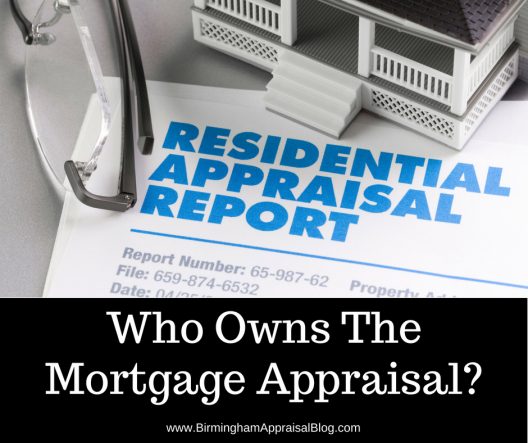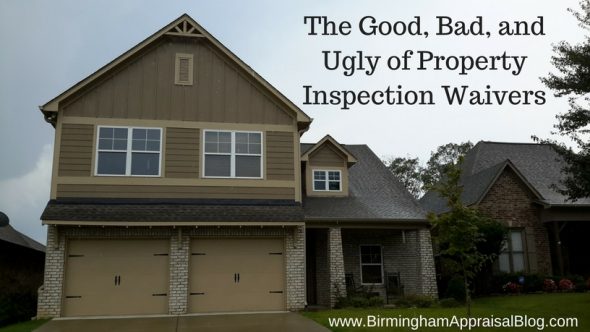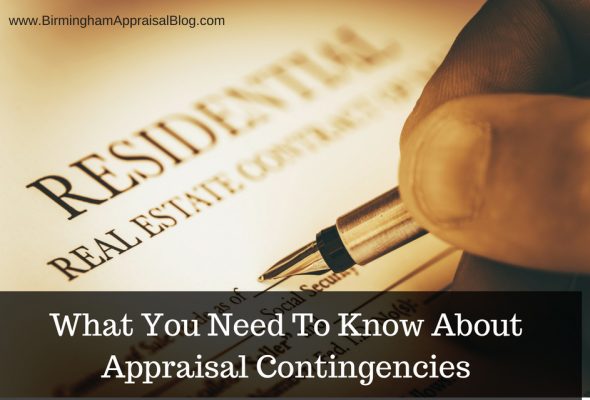Who owns the mortgage appraisal?
 There can be some confusion about who owns the mortgage appraisal and who it is meant for in a home purchase transaction so I thought we’d discuss this topic today. If you are purchasing a home you will want to read this because most people do not understand how the appraisal process works.
There can be some confusion about who owns the mortgage appraisal and who it is meant for in a home purchase transaction so I thought we’d discuss this topic today. If you are purchasing a home you will want to read this because most people do not understand how the appraisal process works.
Most buyers think that because they pay for the appraisal that it is theirs and that the appraiser is working for them. This couldn’t be further from the truth and it’s important for them to understand how the process works.
The purpose of a mortgage appraisal
During a home purchase, where the buyer is getting financing through a lender, an appraisal is typically obtained to satisfy bank underwriting guidelines. There are some situations, that I’ll discuss later, where an appraisal may not be ordered and the buyer should be aware of this and how it affects them.
The main purpose of the appraisal is to make sure that the bank does not over lend on a property. The bank wants to make sure that the home you are buying, and they are financing, is worth what they are loaning you.
If the bank has to take the home back in foreclosure they want to make sure they could sell it and pay off the mortgage. The alternative would be them selling the home for less than what is owed, which would mean that they lose money, and they don’t like to lose money.
But I paid for the mortgage appraisal so it’s mine, right?
Even though the home buyer must pay for the appraisal it is not technically theirs. The lender engages the services of the appraiser and they are the appraiser’s client, not the homeowner. The bank is however required to provide a copy of the appraisal to the buyer but the appraisal is owned by the bank.
This is one of the reasons the appraiser cannot speak to the buyer after the appraisal is done. Since the appraisal is owned by the bank the buyer must go through the lender.
So who’s looking out for the buyer?
You may be asking yourself “If the appraisal is meant for the bank, then who is looking out for the best interests of the buyer?” It is the buyer’s responsibility to look out for their own interests and to make sure they are not overpaying for a home.
the buyer?” It is the buyer’s responsibility to look out for their own interests and to make sure they are not overpaying for a home.
The buyer’s best interests, however, are usually satisfied due to the lender looking out for themselves. The bank does not want to overlend on a property and because of that it usually protects the buyer as well.
This was the case until recently when AVM’s and Property Inspection Waivers (PIW’s) entered the picture. In a quest to speed up the home buying process banks began using these two alternatives to the typical appraisal.
Alternatives to a typical appraisal (or no appraisal at all)
In the past, a typical appraisal would have been ordered almost 100% of the time but that is not always the case now. Two alternatives that banks are now using include an Automated Valuation Model (think of the zestimate) and the Property Inspection Waiver (PIW).
 I’ve written about these in the past so I will not go into detail about them here but the main concern is that if you have a contract with an appraisal contingency, what happens when there is no appraisal? Do you have a way out of the contract if the property is not worth what they’re asking?
I’ve written about these in the past so I will not go into detail about them here but the main concern is that if you have a contract with an appraisal contingency, what happens when there is no appraisal? Do you have a way out of the contract if the property is not worth what they’re asking?
As I noted previously, the consumer needs to make sure they are looking out for their own interests. If the bank does not order an appraisal or they use their AVM, which may or may not be accurate, then the appraisal contingency does you no good.
You may like the idea of a quicker closing but you may want to reconsider and request a full appraisal so that you know the true value of the home you are buying. This may even require you to pay for it, but since your home is typically the largest purchase you will ever make, you want to make sure its worth what you’re paying.
Another additional concern has to do with the liability of the real estate agent. If a buyer trusts the agent to let them know if they are overpaying, what happens when they overpay and are then underwater? Excluding the appraiser who is an unbiased third party can create severe and far-reaching consequences.
What consumers can do
You may be wondering what you as a consumer can do to protect yourself. You want to first keep in mind that the appraiser who performs the mortgage appraisal is working for the bank and are under no obligation to you.
When a full appraisal is done, even though the appraiser is working for the bank, you are usually in the best situation possible. The bank wants to make sure your house is good collateral, meaning it is worth what you are paying, so the likelihood of you being underwater is minimized.
The situation you really want to be on top of is when the bank waives the appraisal or does their own AVM. These two alternatives that the bank takes will not guarantee you that your home is not overpriced.
When an appraisal is waived the bank is typically making their loan decision based on other factors other than the value of the collateral. If something happens with your job or you have some other financial setback and you have to sell your home it may be difficult to sell if you overpaid.
The best course of action for these two situations is to get your own independent appraisal and use it for the appraisal contingency in the contract. This way, you will know the true value of the home and can make a smart and informed decision about your largest asset.
Questions?
If you have any additional questions about mortgage appraisals, who owns them, and how they can be used in the home buying and selling process, feel free to leave a message or contact me by phone or email. As always, thanks for reading.
If you liked this post subscribe by email (or RSS feed). Thanks for visiting.

When I tell people that banks are waiving appraisals they’re often surprised and they usually say something like, “Have we learned nothing from the last housing crash?” The idea is that doing away with one of the systems of checks and balances could end up hurting people. To be fair there is a time and place for an appraisal waiver. My concern though is sometimes people pay 10% too much when a waiver happens and they accept it. It’s great for a smooth transaction, but sometimes it leads to overpaying too.
Well put, Ryan. It will be interesting to see what happens when this comes back to bite the buyer. It’s sad because they are relying on the lender but if a situation like you describe occurs they could stand to lose a significant amount of money. Another thing is that the borrower has to waive all claims against the lender and Fannie Mae.